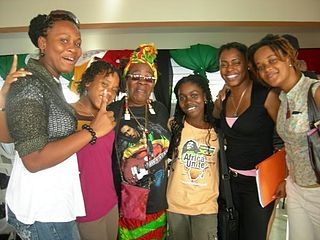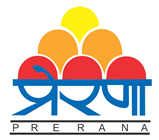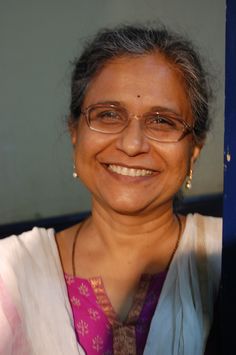Related Research Articles

Trafficking of children is a form of human trafficking and is defined by the United Nations as the "recruitment, transportation, transfer, harboring, and/or receipt" kidnapping of a child for the purpose of slavery, forced labour, and exploitation. This definition is substantially wider than the same document's definition of "trafficking in persons". Children may also be trafficked for adoption.
Sanlaap is an Indian feminist non-governmental organisation, established by Indrani Sinha in 1987 in Calcutta. Based in Calcutta, the group aims to protect the human rights of women and girls. Sanlaap is a developmental organisation that works towards correction of social imbalances which present themselves as gender injustice and violence against women and children. The primary work is focused against trafficking of women and children for commercial sexual exploitation, sexual abuse and forced prostitution. As part of its work, the group starts shops to train girls to make a living and foster their independence.
Human rights in the Philippines are protected by the Constitution of the Philippines, to make sure that people in the Philippines are able to live peacefully and with dignity, safe from the abuse of any individuals or institutions, including the state.
Forced prostitution, also known as involuntary prostitution or compulsory prostitution, is prostitution or sexual slavery that takes place as a result of coercion by a third party. The terms "forced prostitution" or "enforced prostitution" appear in international and humanitarian conventions, such as the Rome Statute of the International Criminal Court, but have been inconsistently applied. "Forced prostitution" refers to conditions of control over a person who is coerced by another to engage in sexual activity.

Birla Balika Vidyapeeth is an English medium residential public school for girls, located in Pilani, Jhunjhunu, Rajasthan, India. The school was founded in 1941. It started with 25 girls and now has 900 students. It is affiliated with the CBSE.
Child Workers in Nepal (CWIN) is a non-governmental organization working as an advocate for children's rights. CWIN supports street children, children subjected to child labour, children who are sexually exploited, and also those victimized by violence. The organization's objective is to protect the rights of children in Nepal. It was established in 1987 by a group of students at Tribhuvan University who, upon investigating the conditions of children living on the streets in Kathmandu, Nepal, recognized the need for advocacy in this area. As a "watchdog" in the field of child rights in Nepal, CWIN acts as a voice for the disadvantaged and exploited children. It does this by lobbying, campaigning, and pressuring the government to protect and promote children's rights, and to end exploitation, abuse and discrimination against children.

Human trafficking is the trade of humans for the purpose of forced labour, sexual slavery, or commercial sexual exploitation.
Human trafficking in India, although illegal under Indian law, remains a significant problem. People are frequently illegally trafficked through India for the purposes of commercial sexual exploitation and forced/bonded labour. Although no reliable study of forced and bonded labour has been completed, NGOs estimate this problem affects 20 to 65 million Indians. Men, women and children are trafficked in India for diverse reasons. Women and girls are trafficked within the country for the purposes of commercial sexual exploitation and forced marriage, especially in those areas where the sex ratio is highly skewed in favour of men. Men and boys are trafficked for the purposes of labour, and may be sexually exploited by traffickers to serve as gigolos, massage experts, escorts, etc. A significant portion of children are subjected to forced labour as factory workers, domestic servants, beggars, and agriculture workers, and have been used as armed combatants by some terrorist and insurgent groups.
Human trafficking in Nepal is a growing criminal industry affecting multiple other countries beyond Nepal, primarily across Asia and the Middle East. Nepal is mainly a source country for men, women and children subjected to the forced labor and sex trafficking. U.S. State Department's Office to Monitor and Combat Trafficking in Persons placed the country in "Tier 2" in 2017.
Nigeria is a source, transit, and destination country for women and children subjected to trafficking in persons including forced labour and forced prostitution. The U.S. State Department's Office to Monitor and Combat Trafficking in Persons placed the country in "Tier 2 Watchlist" in 2017. Trafficked people, particularly women and children, are recruited from within and outside the country's borders – for involuntary domestic servitude, sexual exploitation, street hawking, domestic servitude, mining, begging etc. Some are taken from Nigeria to other West and Central African countries, primarily Gabon, Cameroon, Ghana, Chad, Benin, Togo, Niger, Burkina Faso, and the Gambia, for the same purposes. Children from other West African states like Benin, Togo, and Ghana – where Economic Community of West African States (ECOWAS) rules allow for easy entry – are also forced to work in Nigeria, and some are subjected to hazardous jobs in Nigeria's granite mines. Europe, especially Italy and Russia, the Middle East and North Africa, are prime destinations for forced prostitution.Nigerians accounted for 21% of the 181,000 migrants that arrived in Italy through the Mediterranean in 2016 and about 21,000 Nigerian women and girls have been trafficked to Italy since 2015.
Victims' rights are legal rights afforded to victims of crime. These may include the right to restitution, the right to a victims' advocate, the right not to be excluded from criminal justice proceedings, and the right to speak at criminal justice proceedings.
CHILDLINE 1098 is a service of Ministry of Women and Child Development. Childline India Foundation is a non-government organisation (NGO) in India that operates a telephone helpline called Childline, for children in distress. It was India's first 24-hour, toll free, phone outreach service for children. Childline 1098 service is available all over India. It is available in 602+ districts, 144+ railway stations and 11 bus terminals have Child Help Desks.
Child sexual abuse laws in India have been enacted as part of the child protection policies of India. The Parliament of India passed the 'Protection of Children Against Sexual Offences Bill (POCSO), 2011' regarding child sexual abuse on 22 May 2012, making it an Act. A guideline was passed by the Ministry of Women and Child Development, India. The rules formulated by the government in accordance with the law had also been notified on the November 2012 and the law had become ready for implementation. There have been many calls for more stringent laws.

Women in Trinidad and Tobago are women who were born in, who live in, or are from Trinidad and Tobago. Depending from which island the women came, they may also be called Trinidadian women or Tobagonian women respectively. Women in Trinidad and Tobago excel in various industries and occupations, including micro-enterprise owners, "lawyers, judges, politicians, civil servants, journalists, and calypsonians." Women still dominate the fields of "domestic service, sales, and some light manufacturing."
The Ain O Salish Kendra (ASK) (Bengali: আইন ও সালিশ কেন্দ্র (আসক); Centre for Law and Mediation) is a non-government, a national legal aid and human rights organisation in Bangladesh. It is one of the leading human rights organizations of the country and is highly active in issues of legal and social support to the dis empowered, particularly women, working children and workers as well as exposing human rights abuses by Bangladeshi security forces. It consults with Amnesty International and with the United Nations Economic and Social Council (ECOSOC). The centre was established by prominent Bangladeshi lawyers and activists in 1986.

Prerana is a non-governmental organization (NGO) that works in the red-light districts of Mumbai, India to protect children vulnerable to commercial sexual exploitation and trafficking. It was established in 1986.

Priti Patkar is an esteemed social worker and human rights activist from India. She holds the position of co-founder and director at Prerana, an organization that has been a trailblazer in addressing issues within the red-light districts of Mumbai, India. Priti Patkar's efforts primarily focus on safeguarding children who are at risk of falling victim to commercial sexual exploitation and trafficking.

Tabassum Adnan is a Pakistani women's rights activist from the Swat Valley. She won the U.S. State Department's 2015 International Women of Courage Award for her efforts in seeking justice for Pakistani women.
Aware Girls is a non-governmental organization in Peshawar, Khyber Pakhtunkhwa, Pakistan, founded in 2002 which aims to address violence and discrimination against women and young girls in Pakistan, and advocate for women's rights, education, and access to sexual and reproductive health resources. Their stated aim is "to strengthen the leadership capacity of young women enabling them to act as agents of social change and women empowerment in their communities."
Kriti Bharti is an Indian rehabilitation psychologist and children's rights activist. Bharti made headlines as the first annuller of child marriage in India. She is the founder and director of Saarthi Trust, a non-profit organization that primarily rescues and ensures the recovery and welfare of child marriage victims. Bharti's team has annulled more than 41 child marriages and prevented more than 1,400 from occurring.
References
- ↑ "New Body Formed to Protect Women's Rights". The Hans India. 7 August 2015.
- ↑ "Conflict fuels child labour in India". South Asia Post. Archived from the original on 29 December 2018. Retrieved 12 December 2015.
- ↑ ""Bikeathon" to save girl child today". The Siasat Daily. 10 October 2015.
- ↑ "National Commission for Protection of Child Rights". Ncpcr.gov.in.
- ↑ "Delhi Commission for Protection of Child Rights Act". Delhi.gov.in. 28 September 2015. Archived from the original on 17 April 2019. Retrieved 12 December 2015.
- ↑ "Graveyard is Home for forty Yrs for 300 Families". The New Indian Express. 27 June 2014. Archived from the original on 22 December 2015.
- ↑ "Kids in Nellore play with human skulls". Deccanchronicle.com. 27 June 2014.
- ↑ "Media coverage on child rights issues dismal: study". The Hindu. 24 September 2014.
- ↑ "6th UNICEF Awards" (PDF). Cmsindia.org. Archived from the original (PDF) on 4 March 2016. Retrieved 4 February 2016.
- ↑ "NRI Samay - Tharuni.Org Empowering Adolescent Girls for over a decade - Dr Achanta Mamatha Raghuveer". citymirchi.com. Archived from the original on 22 December 2015. Retrieved 12 December 2015.
- 1 2 "Maternal Healthcare Evades Marginalised Mothers | Inter Press Service". Ipsnews.net. 28 May 2013.
- 1 2 Paul, Stella (28 May 2013). "Maternal Healthcare Evades Marginalised Mothers — Global Issues". Globalissues.org.
- ↑ "'To be born a girl is still looked at as a curse'". The Hindu. 7 February 2012.
- ↑ "Hyderabad: School under scanner for sexual abuse of students". IBNLive. 1 November 2014.
- ↑ "SHAHEEN WOMEN´S RESOURCE AND WELFARE ASSOCIATION" (PDF). Shaheencollective.org. Retrieved 4 February 2016.
- 1 2 "KCCI / 2008 - 04 : Championing Gender Issues : A case study of Balika Sanghas in Warangal and Kurnool" (PDF). Kcci.org. Archived from the original (PDF) on 4 March 2016. Retrieved 4 February 2016.
- ↑ Staff Reporter. "'Create awareness on women and child rights'". The Hindu. Retrieved 22 January 2017.
- ↑ "NILA filed a PIL in Lokayukta, Hyderabad on Child Deaths in Academic Institutions". NILA. 17 August 2015. Retrieved 22 January 2017.
- ↑ "Govt chalks out plans to check child labour". The Hans India. Retrieved 22 January 2017.
- ↑ "UN Women team lauds work of Bharosa centre, She Teams | The Siasat Daily". www.siasat.com. Retrieved 22 January 2017.